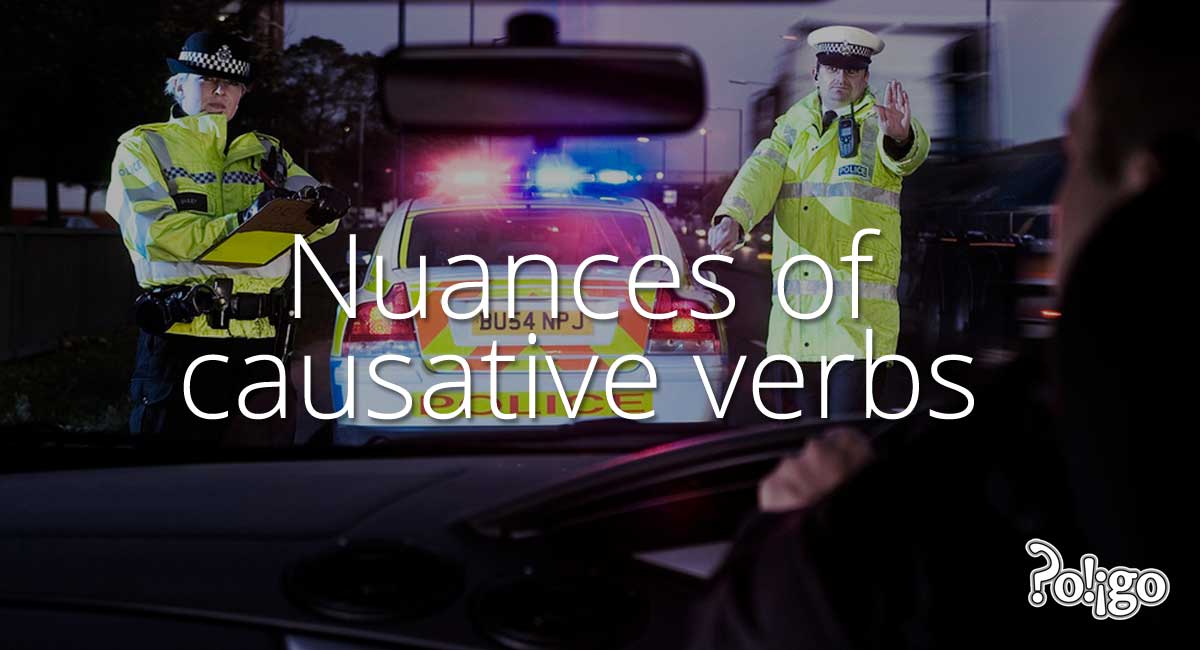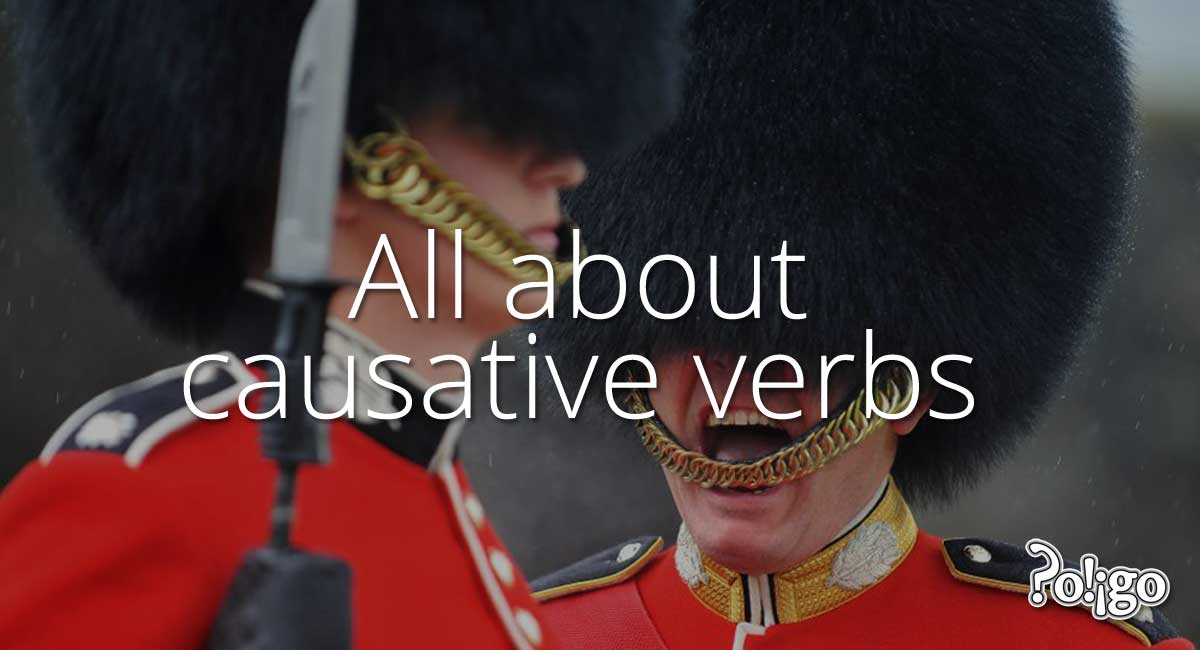
Causative verbs are based on a power relationship. One person has the power to make another person do something. For example, your boss can make you work on your day off. Your boss has the power.
When you choose a causative, you should think about the feelings of the people involved. For example, if you do not want to work on your day off, your boss has to force you or make you work. However, if you want to do something, you might need permission. In that case, someone has to let or allow you to do something.
If you need to review this, check out the lesson on causatives.
There are some other differences between the main causative words that you should know.
"Force" and "make"
"Force" and "make" are very similar in meaning but the nuance is different sometimes. For example:
- The police forced the driver to stop.
- The police made the driver stop.
In both situations the driver does something they don't want to do. However, the degree of power is different. "Force" suggests physical power. In sentence (1), maybe the police used guns or pushed the car of the road. "Make" suggests authority or emotional/mental power. In sentence (2), the police could just flash their lights or raise a hand and gesture for the driver to stop.
Another example:
- My girlfriend made me buy her dinner.
- My girlfriend forced me to buy her dinner.
In sentence (1), maybe I forgot my girlfriend's birthday, and she was angry. She made me buy her dinner to say sorry. Sentence (2) makes my girlfriend sound very scary. Sentence (2) is not natural.
"Get" and "had"
"Get" and "had" are also slightly different in nuance. For example:
- I had the waiter bring me some water
- I got my friend to bring some DVDs to my house.
In both situations, we asked someone to do something. However, "get" is friendlier, like a favour from a friend. "Had" is a little cold or impersonal, like to staff in a shop.
Another example.
- I got my mum to make me lunch.
- I had my mum make me lunch.
Sentence (1) is more likely. Your mum is kind, and you are happy that your mother made your lunch. Sentence (2) is cold. It sounds almost like an order. You shouldn't talk about your mum like this!
Note: Be careful here. In the causative passive form, "had" can also be used to talk about things that we did not ask for and do not want! For example:
- "I had my wallet stolen."
- "I had his arm broken in the crash."
These things are bad news. "Get" cannot be used like this.
"Let" and "allow"
"Let" and "allow" are also different:
- My friend let me stay at his house because I missed the last train.
- Some restaurants in Japan allow dogs to come inside.
In both situations, you need permission to do something from someone with authority and they said yes. However, "let" is casual, and "allow" is quite formal. This can make a difference:
- My friend let me use his iPod.
- My friend allowed me to use his iPod.
The second sentence is weird. The situation is wrong. It would be better to use "allow" in a more serious situation.
A couple of examples:
- The police allowed him to make a phone call.
- You are not allowed to use dictionary in the exam.
Thanks to Dwayne D. for these ideas.
This language can be a bit difficult. You need to practice it. A good idea is to think of a scene and then what the people involved say. Describe what has happened.
For example:
- A parent telling a child what to do: The parent says, "Do your homework!" What happened? He made his son do his homework.
- Asking a friend for something: You say to your friend, "Can you help me with this homework?" What happened? I got my friend to help me with my homework.
- Asking for a favour or permission: You say to your boss, "Can I take the afternoon off?" What happened? My boss let me take the day off.




